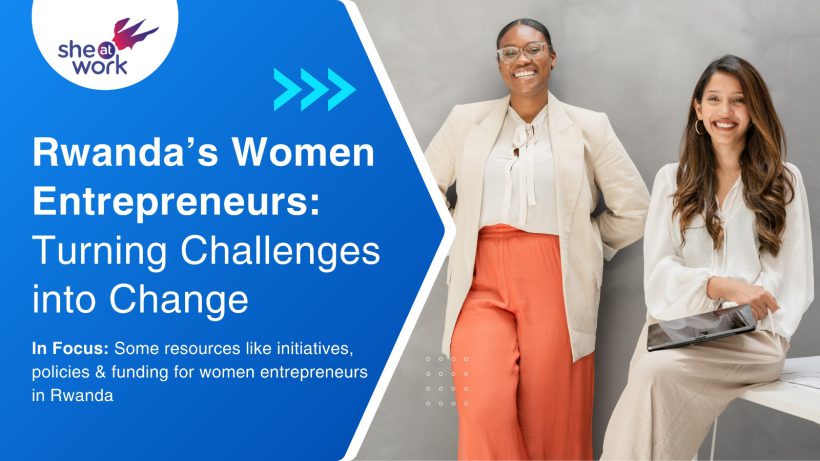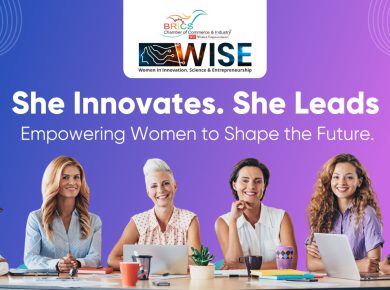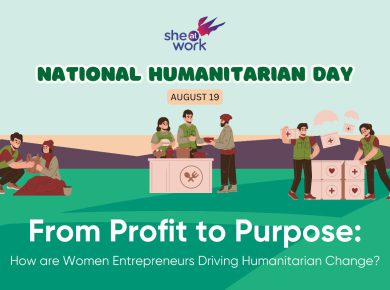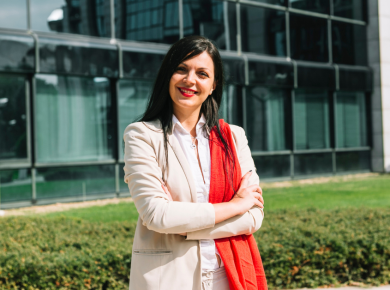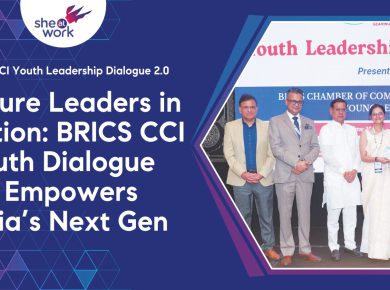In Focus: Some resources like initiatives, policies & funding for women entrepreneurs in Rwanda
#SheTransforms #RwandaStrength #WomenRising
Rwanda, often called the “Land of a Thousand Hills”, is not only known for its breathtaking landscapes, but also for the remarkable rise of women entrepreneurs shaping its economy.
Today, women own a significant share of businesses across the country – specially in retail, services & agriculture, making them an essential driver of Rwanda’s economic transformation. Many of these ventures are rooted in the informal sector, which contributes substantially to the nation’s GDP and job creation. Yet, despite their growing presence, women continue to face barriers such as limited access to finance, education, skills training and persistent gender bias that restrict their ability – to scale and compete on equal footing.
Breaking Barriers, Building Businesses: Rwanda’s Women Lead the Way
To bridge these gaps, Rwanda has steadily fostered an environment that promotes gender equality & women’s empowerment. The government, alongside NGOs and international partners, has rolled out programs to expand women’s access to capital, improve business skills, and connect them to wider markets. Organizations like Women for Women International Rwanda, Becoming Nala and the Rwanda Chamber of Women Entrepreneurs are equipping women with the tools to manage & grow their enterprises. Financial support and mentorship initiatives such as the AWCE Fund and the VIBE programme (backed by the Mastercard Foundation and International Trade Centre) are also opening doors for women-led businesses.
Through training, cooperative models & targeted funding, Rwanda is nurturing a generation of women entrepreneurs who not only uplift their families, but also strengthen their communities & contribute to the nation’s vision of inclusive, sustainable development.
Here’s turning the lens toward some initiatives, policies and funding that are available for women entrepreneurs in Rwanda.
- Women for Women International
Women for Women International is a non-profit humanitarian organization that provides practical and moral support to female survivors of war. This organization helps women entrepreneurs gain the skills and connections needed to formalize their businesses and become more profitable, especially in rural areas.
Their mission is – Celebrating 30 years and focusing on Strategy 2030: The Power of Women.
As each woman participates in the year-long programme, she works to strengthen herself across four critical areas of social and economic empowerment.
- Becoming Nala (formerly SophieChan)
This programme aims to build an ecosystem of businesses powered by rural women.
This support platform for rural female entrepreneurs in Rwanda, provides digital matchmaking for training, access to funding & market access. So, they offer a hybrid solution with a digital platform & curated resources – to help women overcome barriers to entrepreneurship.
Basically, Becoming Nala is an organization created to empower women in leadership and enterprise. It provides a space where mentors, mentees, givers & receivers can come together to share their experiences and learn from each other. It is built on trust, respect, and genuine connections.
- Rwanda Chamber of Women Entrepreneurs (RCWE)
The Rwanda Chamber of Women Entrepreneurs (RCWE) is an organization dedicated to empowering women in Rwanda – to establish and grow their businesses. It focuses on providing women entrepreneurs with the skills, resources and networks necessary to succeed in the Rwandan economy, according to a report by Julius Baer. In fact, RCWE is part of a larger movement – to unlock female entrepreneurship in Africa, which is seen as vital for poverty reduction and sustainable economic growth.
The Rwanda Chamber of Women Entrepreneurs (RCWE) was established in 2005 under the auspices of the Rwanda Private Sector Federation (PSF). This umbrella organization empowers women in business through capacity building, advocacy, networking & support services. They also focus on social corporate responsibility and forging partnerships.
What is their mission? To improve the socio-economic status of women entrepreneurs in both urban and rural areas – by creating opportunities for their development through enhanced economic participation. RCWE offers services to its members that are spread across eight business sectors such as – tourism, liberal professionals, arts and crafts, ICT, agriculture, industry, commerce and services & finance.
Working towards achieving their mission, they support women entrepreneurs in five key ways – through advocacy, networking, capacity building, market access facilitation and other business development support services. They have organized many advocacy and outreach campaigns through organization and participation in national and internal fora as well as networking Business-to-Business fora. They have also facilitated women entrepreneurs to access markets through trade exhibitions and expos and participated in international seminars and conferences.
The RCWE’s primary goal is – to empower women in Rwanda to become successful entrepreneurs. The organization concentrates on areas such as: Providing training and mentorship to aspiring and established women business owners; Facilitating access to finance and other resources needed to start and expand businesses and Building a strong network of female entrepreneurs, fostering collaboration; knowledge sharing and Advocating for policies that support women-owned businesses.
So, by supporting women entrepreneurs, the RCWE contributes to: economic growth in Rwanda, poverty reduction & increased female participation in the formal economy.
The RCWE is part of a wider effort to promote women’s entrepreneurship across Africa, recognizing its potential to drive development and improve living standards.
https://www.devex.com/organizations/rwanda-chamber-of-women-entrepreneurs-rcwe-205752
- AWCE Fund (Accelerating Women Climate Entrepreneurs)
AWCE Fund supports women climate entrepreneurs in Sub-Saharan Africa – with grants to test innovative approaches to gender-lens investing. The programme also includes a green sector hackathon for Rwandan women entrepreneurs.
The AWCE Fund, an activity under the Accelerating Women Climate Entrepreneurs project, aims to contribute to poverty reduction and respond to climate change by identifying and promoting good practices to support women entrepreneurs in climate-related value chains.
https://www.aspeninstitute.org/news/ande-accelerating-women-climate-entrepreneurs-fund-winners
- VIBE Programme (Value-Added Initiative to Boost Employment)
This initiative is supported by the Mastercard Foundation and the International Trade Centre. It aims to unlock access to domestic, regional/global networks and markets for entrepreneurs.
It focuses on supporting women-led and refugee-led agricultural businesses, linking them to wider markets and work opportunities.
The project “Rwanda: Value-added Initiative to Boost Employment (VIBE) for Women-led Businesses” (VIBE-SheTrades Rwanda) is part of the VIBE programme, a five-year programme led by TradeMark Africa (TMA) and in partnership with Mastercard Foundation – to increase dignified employment, particularly among excluded groups such as women, youth, refugees & people living with disabilities in Rwanda. The VIBE programme aims to contribute to the Mastercard Foundation’s Young Africa Works (YAW) strategy, launched in Rwanda in 2018 – to provide opportunities for young people in Africa to secure dignified and fulfilling work.
- SheTrades Initiative
The SheTrades Initiative, a project of the International Trade Centre (ITC). It focuses on connecting women entrepreneurs to markets and supporting their growth.
In Rwanda, this initiative works to support female entrepreneurs – by providing them with skills and connections needed to formalize their businesses and access markets, contributing to the growth of a strong ecosystem of women-led businesses.
The core goal of the SheTrades Initiative is – to link women entrepreneurs to markets, providing them with tools and resources to expand their businesses. It focuses on developing a supportive ecosystem for women-led businesses in Rwanda, helping them formalize their activities and thrive.
The programme provides women with training, mentorship & networking opportunities to enhance their skills and business acumen.
The Made in Rwanda policy complements the SheTrades Initiative – by boosting domestic production, promoting value-added products, and addressing trade imbalances.
The SheTrades Rwanda Hub is a component of the Enhanced Integrated Framework (EIF)-funded “Project to Enhance the Effectiveness and Efficiency of Export Growth Initiatives” managed by the Rwandan Ministry of Trade and Industry & hosted by the Private Sector Federation Rwanda – Chamber of Women Entrepreneurs (PSF/CWE).
Established in 2015, ITC SheTrades aims to create the right conditions and capacities for women to thrive in global trade. At SheTrades, the work is backed by the firm understanding that empowering women through trade requires firing up all levers in the trade and business ecosystem.
https://www.shetrades.com/about-the-initiative/
- She WINS Africa
The programme She WINS Africa run by International Finance Corporation (IFC), focuses on unlocking the potential of women-owned startups in Africa. It is designed to assist women entrepreneurs across sub-Saharan Africa by offering – training, mentorship & networking opportunities that will help their startups succeed.
These initiatives demonstrate a commitment to support women entrepreneurs in Rwanda – by addressing various challenges and providing tailored support to help them thrive.
The International Finance Corporation (IFC) is the largest global development institution focused solely on the private sector in developing countries. Backed by 60+ years of experience, IFC empowers its partners with financial resources, technical expertise, and innovative thinking to overcome challenges. Its mission is to boost shared prosperity by fostering a strong private sector, essential in ending extreme poverty. Operating in 100+ countries, IFC unlocks private investment and creates opportunities where needed most.
https://www.seedstars.com/community/entrepreneurs/programs/she-wins-africa
- The African Women In Business Initiative (AWIB)
The African Women In Business Initiative (AWIB) responds to the African Development Bank’s Private Sector Development Strategy emphasis on the role of women in business, to empower women entrepreneurs, in particular SMEs, through better access to finance.
In this respect, the Private Sector and Microfinance Department (OPSM) has developed under the Initiative, integrated financing programmes for women entrepreneurship development with the following objectives:
- To contribute to a more equitable business environment for women entrepreneurs and enhance their contribution to economic development;
- To develop SME financing instruments and mechanisms to enhance the financial market and assist successful SMEs to grow their enterprises.
AWIB works hard to develop initiatives that help to foster a strong entrepreneurial culture, make self-employment attractive & enhance entrepreneurship training at all levels of schooling.
- Policies
Business Development Fund (BDF)
Rwanda has implemented various policies to support women entrepreneurs, including access to finance, training programmes & legal frameworks that promote gender equality. These initiatives aim to enhance women’s participation in the formal economy and foster their economic empowerment.
Rwanda government established the Business Development Fund (BDF) – to provide loan guarantees for women-owned businesses. The BDF was established as a branch of the Development Bank of Rwanda (BRD) – to support small and medium-sized enterprises through loan collateral.
https://www.developmentaid.org/donors/view/415135/business-development-fund-bdf
- Rwanda’s Vision 2050
The Government of Rwanda (GoR) promotes private sector and small businesses growth – to drive the country’s attainment of middle-income status by 2035 and high income status by 2050. The development of Rwanda’s private sector will be critically important in achieving the Sustainable Development Goals (SDGs) and the 2030 Agenda.
Rwanda’s Vision 2050 programme, which follows the previous Vision 2020 20-year development plan (which rebuilt Rwanda after years of Civil War and Genocide) – aims to transform Rwanda into an Upper-Middle Income Country by 2035, and into a High-Income Country by 2050.
Rwanda’s Vision 2050 articulates the long-term strategic direction for Rwanda and the road to achieve this ambition. Energized by the past two decades of success in reducing poverty, increasing incomes, improving living standards, strengthening good governance, promoting home grown solutions, establishing rule of law, maintaining stability, promoting gender equality and women empowerment, peace and security, Rwanda now aspires to transform its economy and modernize the lives of all Rwandans. Recognizing that achieving these aspirations will require bold, decisive action, Vision 2050 serves as the critical planning and policy blueprint – to guide the efforts of all players in Rwanda’s development, including Government, private sector, citizens, diaspora, civil society and faith-based organizations, development partners, academia and research institutions, and political parties.
Vision 2050 establishes the development framework for 2020-2050, with a mid-term review envisaged in 2035 and regular reviews planned every 5 years. The Vision intensifies the country’s ambitions, and continues the drive towards self-reliance & competitiveness.
The elaboration of Vision 2050 has taken into consideration the global and regional development agendas – to ensure harmonization of targets and indicators. Those include: The Sustainable Development Goals (SDGs), African Union (AU) Agenda 2063, East African Community (EAC) Vision 2050, and the Paris Agreement on climate change among other instruments.
Building on Rwanda’s extraordinary record of success and energized by the aspirations of a strong leadership and a middle-class on the rise, Vision 2050 charts a bold and ambitious future for Rwanda.
- The Made in Rwanda initiative
The Made in Rwanda initiative is a Rwandan government programme aimed at boosting the country’s industrial sector – by promoting the production and consumption of locally-made goods. The initiative seeks to reduce – the trade deficit, create jobs & enhance Rwanda’s global competitiveness by fostering a strong domestic market.
The Government of Rwanda has also drafted a “Made in Rwanda” (MiR) Policy. This seeks to improve the overall trade balance by improving perceptions of Rwandan products within Rwanda, promote nascent industries & boost productivity of exporting sectors (MINEACOM, 2017).
Improving linkages between domestic suppliers and large exporting firms is a critical component of the ‘Made in Rwanda’ policy.
The secretariat is based in SPIU-MINICOM purposely to coordinate Made in Rwanda Policy under Ministry of Trade and Industry and is funded by Government of Rwanda. The Made in Rwanda Policy is a holistic roadmap aimed at increasing economic competitiveness – by enhancing Rwanda’s domestic market through value-chain development. It does so through two channels: firstly, it brings together existing government interventions under a clear policy framework; secondly, it addresses supply-side bottlenecks via targeted interventions aimed at deepening specific high potential value chains, improving quality, and boosting cost competitiveness.
This policy will be implemented in close coordination with other Government agencies and with private sector partners. While MINICOM will be the overall Policy lead, the Rwanda Development Board (RDB) and the Rwanda Standards Board (RSB) will lead on market access and quality, respectively.
https://www.minicom.gov.rw/1-1/made-in-rwanda-secretariat
- Access to Finance Rwanda (AFR)
Historically, women in Rwanda like in many other parts of the world, have been left out on targeted financial inclusion efforts; and they have not been given sufficient choices of financial products & services tailored to their roles as mothers, entrepreneurs, employees and in some cases, breadwinners.
During the 2015 Global Leaders’ Meeting on Gender Equality and Women’s Empowerment, Rwanda pledged to increase the economic participation of women by increasing access to financial services, improving the use of available financial products as well as boosting ICT usage by the year 2020. Across all the public and private sectors, Rwanda aims to achieve gender parity in financial inclusion by 2030.
In that regard, Access to Finance Rwanda (AFR) has responded by acting as a catalyst to initiate financial services & digital platforms that can be easily accessed and used by rural low-income people especially women. Through collaborating with financial institutions and fintech companies, Access to Finance Rwanda enabled the development of digitalized women-centred financial products. This entailed co-creation with financial service providers, throughout the process of conceptualization, designing, piloting & testing to ensure the products were innovative and founded on the integration of women into financial systems and markets.
Since its inception in 2010, AFR has achieved successful runs in removing the systemic barriers that hinder access to financial services, by putting the low-income people particularly the rural poor and women at the centre of its interventions. Through partnerships with financial institutions and other stakeholders, various financial products have been successfully developed, tested & launched for use. They are now being utilized by a growing number of beneficiary communities that include – saving groups, cooperatives & individual entrepreneurs.
https://afr.rw/afr-reinventing-the-future-with-women-centred-financial-products/
- The African Development Women’s Fund (AWDF)
The AWDF is a Pan-African grant making organization that supports the realization and fulfilment of African women’s rights, through funding of autonomous women’s organizations on the continent.
The African Women’s Development Fund (AWDF) is a grant-making foundation that supports local, national and regional women’s organizations working towards the empowerment of African women and the promotion and realization of their rights. By specializing in grant-making and focused, tailored movement-building programmes, they work to strengthen and support the work of African women’s organizations. By amplifying and celebrating African women’s voices and achievements, AWDF supports efforts that combat harmful stereotypes & promote African women as active agents of change.
Their vision is – to envision and work towards creating an Africa, and a world, where gender justice, freedom and dignity are achieved for all.
Their mission is – to resource, strengthen and uphold African women’s rights and feminist organizations and movements that strive for gender justice and social transformation.
- Women for Women Rwanda
In 2021, local leadership in Rwanda led the process of establishing Women for Women Rwanda (WfW-Rwanda) as an independent sister organization.
Through WfW-Rwanda, the Stronger Women, Stronger Nation (SWSN) programme supports women – by providing peer support and training which enables them to generate income, save money for the future, and achieve economic independence to support their families. SWSN participants also receive the training and resources to understand and defend their rights and learn to influence decisions in their homes and communities. Through the programme, Rwandan women are trying to transform their lives, families & communities.
After women complete the year-long programme, they continue to support their journey to empowerment and self-sufficiency through advanced training. They also foster continued opportunities for women after they complete the Stronger Women, Stronger Nations programme. By connecting women to financial services, advanced business and vocational training, and support networks, they increase opportunities to grow their businesses and unlock their full potential.
https://www.womenforwomen.org/where-we-work/rwanda
https://www.facebook.com/wfwrwanda
- The Fund for Innovation in Development (FID)
The Fund for Innovation in Development (FID) grants $1.3m to equip Rwandans living in poverty to transform their lives through entrepreneurship
FID supports solutions with high potential for impact against poverty and inequality, rigorously evaluates their effectiveness, and accelerates their deployment on a larger scale.
A good example can be the grant that was extended to co-finance Village Enterprise’s partnership with the Government of Rwanda – to scale its poverty graduation model in the country, equipping vulnerable households to break the cycle of extreme poverty and become more resilient to climate change.
This co-financing will enable Village Enterprise – to provide critical training, startup cash, and business mentoring to people living in extreme poverty to help them set up their own businesses. It will also allow Village Enterprise to train government staff to lead on implementing this poverty graduation program independently.
https://villageenterprise.org/blog/fund-for-innovation-in-development/
- Empower Rwanda
Empower Rwanda is focused on advancing Girls’ and Women’s Rights, and promoting Gender Equality.
This is a Women-led Non-Governmental Organization that was established in Rwanda in 2019 – to support women and youth through providing skills, knowledge, and resources that create sustainable change for them, their families, and their communities.
Their vision is – to empower youth and women with knowledge and skills to impact their lives and communities.
And their chosen mission is – to empower the most vulnerable children, youth and women in Rwanda for their academic and socio-economic development through enhancing access to quality education and health; social and economic empowerment and advocacy interventions.
They currently provide a broad array of vital support and education to over 400 teenage mothers in 3 districts (Rwamagana, Gatsibo and Nyagatare) in the Eastern Province of Rwanda
